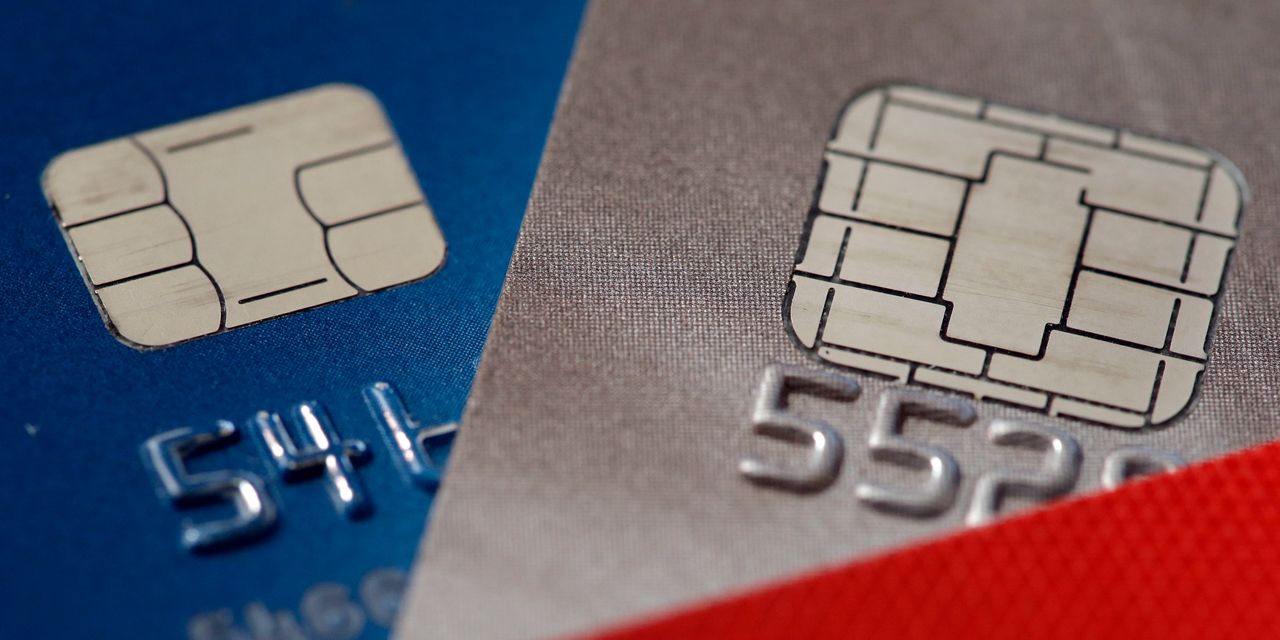
There’s a longstanding debate about which is better when it comes to teaching young adults about good financial habits—debit cards or credit cards.
Debit cards allow young adults to carry less cash and teach them to spend only what they have in their account. Credit cards, on the other hand, allow them to establish a credit history and increase their credit score, which can be critical for purchasing big-ticket items later on, such as a house or car, or even for starting a business. There are downsides to both payment methods, however, so we asked experts to weigh in on how young people can best use these tools.
Here are edited excerpts of our discussion with Lisa Bedell, operations manager for a team of financial professionals at Moneta Group Investment Advisors LLC in St. Louis; Kerry Jackson, partner and director of financial planning at Fish & Associates in Memphis; and Alex Klingelhoeffer, wealth adviser at Exencial Wealth Advisors in Oklahoma City.
Where to use what
WSJ: Are there things young people should use debit cards for specifically and how should they use them?
Ms. Jackson: Using a debit card gives young folks the autonomy to handle their own cash flow, create a spending plan and learn to budget. A healthy cash flow provides a solid base to any financial plan, so starting with a debit card is an excellent first step to good long-term financial habits. You don’t build credit this way and you’re only dealing with cash, but I don’t see that as a downside; more as a first step on a financial road map.
Ms. Bedell: Young people should use debit if they are struggling to control spending and need help sticking to their budget. If the cash is not available in their account, it’s not possible to spend it, unlike the high credit limits credit-card lenders offer.
Mr. Klingelhoeffer: For things like rent and utilities, it’s probably best to have these payments directly debited from your bank account. This way, you’re paying your bills first before any discretionary spending. For lots of folks, when we see a higher balance in our bank account, we are likely to spend more, despite those dollars being earmarked for bills. If you have these payments come out first, it’s a little easier to know what you can spend and resist the temptation to spend more than you otherwise would.
WSJ: Are there downsides to young people using debit cards?
Ms. Bedell: Lack of credit history, few or no cash-back benefits, and higher liability to the user should their card be stolen and used fraudulently. For debit cards, it’s also a good idea to set up alerts so you know your balance before that fancy dinner date. Similarly, alerts on your checking account, such as low-balance notifications or high-transaction notifications, can help you stay on top of potential cash-flow issues. Also, be diligent about checking your statements, or set up security alerts for all debit transactions.
Mr. Klingelhoeffer: If you’re only using debit, you won’t build a good stable history of using credit responsibly. This could be an issue when it comes time to buy a house or other large purchase. No credit history means a lot higher rates on those items that pretty much everyone has to finance.
WSJ: What are the biggest misconceptions young people have about using debit?
Ms. Bedell: In my experience, the concern is that debit is less “safe” from a fraud standpoint. This is true in that your liability for fraudulent transactions is higher. However, with so many safety features offered by banks to verify transactions, it can be easy to use debit in a way that prevents this from happening. Similarly, users will need to be more diligent about checking their available balance, but again, many banks offer easy ways on mobile applications to do this, and it provides the benefit of keeping track of spending far better than a credit card.
SHARE YOUR THOUGHTS
How do you use credit and debit cards? Join the conversation below.
Mr. Klingelhoeffer: Most people think if they use a debit card they’ll never be in trouble because they can only spend what’s in their bank account. But life is unpredictable. Some months we have really good fortune and a bigger balance in our checking accounts. In other months, the A/C in our car dies and we need to fix it. Ultimately, cash in doesn’t always equal cash out, so having a backup line of credit or other source of temporary liquidity is almost always a sound financial decision.
WSJ: Do you subscribe to the anticredit theory for young people, and, if not, how specifically should young people be using credit?
Ms. Jackson: There are so many setbacks people can face with a low credit score and a bad credit history. Although more and more millennials are getting married and starting families later than previous generations, they still have many traditional financial goals like owning their own home, and many of them are incredibly entrepreneurial. It can be a major roadblock if you don’t have the credit standing to get a loan. You could find yourself paying hundreds or even thousands more in interest than you otherwise may have.
Mr. Klingelhoeffer: Young people should use credit for almost everything they buy. Setting up a system for reliably spending on credit and then paying off your bill at the end of each month is a great way to build wonderful money habits. If excessive spending is a problem, there is nothing wrong with asking your bank for a lower limit; they will almost always say yes.
Ms. Bedell: Credit doesn’t have to be the enemy, so long as you know how to use it responsibly. Young people should be using credit primarily to build credit history, ideally good credit history, by paying the card off with each statement.
Where to begin
WSJ: How should young people start building credit and good credit practices?
Ms. Jackson: I recommend not utilizing credit cards beyond what you can afford to pay off monthly, so if someone is getting their first card, they could try setting it up for just a few a small bills (cellphone, utilities, etc.) and ensuring autopay is turned on so they never pay late or incur interest. Another option for younger adults is to be added as an authorized user on their parents’ credit-card account. This can create open communication about best practices within the family and provide ongoing monitoring and guidance as that child learns.
Ms. Bedell: Store credit cards, such as Macy’s, Target, etc., usually are more forgiving of a lack of income or previous credit history, and will often approve a new user for a small amount to get started. This can be the building block to start on your credit history, before applying for a credit card with more inclusive perks.
WSJ: What is the biggest misconception that young people have about using credit?
Ms. Bedell: In my experience, the biggest misconception is that users don’t need to stick to their budget if they have a credit card. It can be easy to make big purchases on a credit card, forgetting that one day that bill will need to be paid. This concept is illustrated by millennial David Rose in the “Schitt’s Creek” sitcom when he doesn’t understand that the expensive eye cream he’s received from France will ultimately come back to haunt him on his credit-card bill.
Mr. Klingelhoeffer: The biggest misconception is that you need to spend a lot or focus on “building credit.” Building credit takes time. Banks want to know you’re a good risk to have on their books over many years. If you simply put your discretionary purchases on a card for a number of years and always pay off your full bill, you’ll have wonderful credit far faster than you might imagine.
Ms. Winokur Munk is a writer in West Orange, N.J. She can be reached at [email protected].
Copyright ©2021 Dow Jones & Company, Inc. All Rights Reserved. 87990cbe856818d5eddac44c7b1cdeb8








